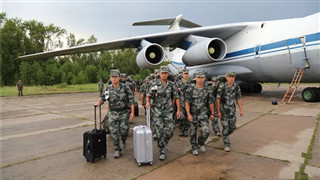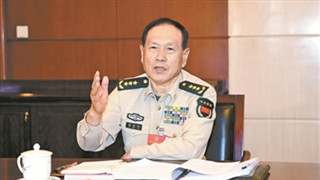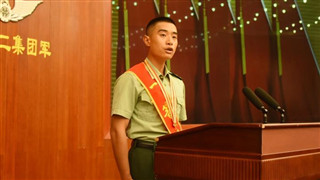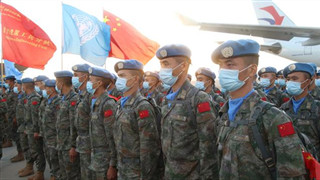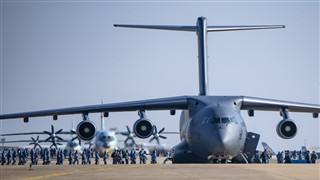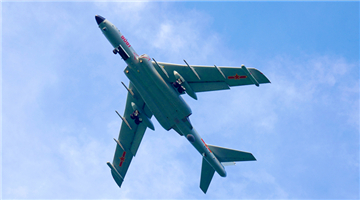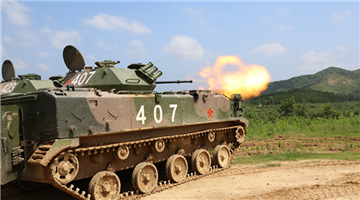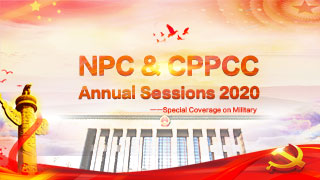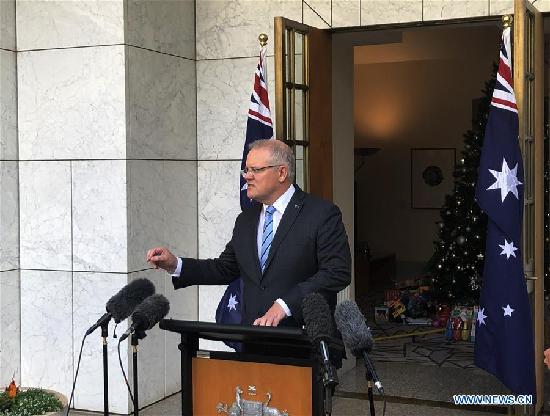
By Yu Lei
This year, Australia is busy initiating provocations and coming on the heel of the US. It participated in Exercise Malabar, a trilateral naval exercise involving the United States, Japan, and India; it launched a new version of the defense budget of huge amount for the next decade; and recently, the country agreed with the US at the Australia–US Ministerial Consultations (AUSMIN) to strengthen military cooperation in the Indo-Pacific region. Some Australian politicians pointed out with concerns that the regional tensions provoked by the US and Australia in such a way may spark an accidental conflict or even a ‘hot war’.
In fact, Australia reaped no benefits by following the US in supporting various ‘wars' after World War II. In the Vietnam War, Australia suffered huge losses of human lives, properties, and materials, as well as social cleavages. After the war, it fell into an economic slump for a long time with an extremely high rate of unemployment. In this regard, Lee Kuan Yew, former prime minister of Singapore, famously warned in 1980 that Australia was destined to become the "poor white trash of Asia" at the turn of the century.
However, Australia has been lucky. The rapid growth of China’s economy in the 1980s and 1990s was a great boon for Australia, as the emerging power helped consume excess of Australia's sources like iron ore, coal and natural gas. Meanwhile, China’s development has served to promote Australia’s tourism, education of overseas students and other “smokeless industries”, driving Australia into an unprecedented period of economic prosperity for more than 30 years.
Witnessing the peace dividend from win-win cooperation and the cruelty or killings in wars, some Australian politicians who have gone through wars and are of strategic thinking, including Bob Hawke, Paul Keating, John Howard, etc., welcomed the peaceful rise of China and actively participated in the building of organizations aiming to promote the integration of the Asia-Pacific region through the Asia-Pacific Economic Cooperation (APEC) and other organizations. Australia’s former prime ministers, including Kevin Rudd, Julia Gillard, and Tony Abbott, once pushed China-Australia relations from "trade partnership" to "strategic partnership" and "comprehensive strategic partnership".
Scott Morrison, Australia’s incumbent Prime Minister, verbally stated that he "welcomes the rise of China". However, in practice, he has significantly increased military expenditures and provided conditions for the US to expand the scale of troops stationed and armament deployment in the Indo-Pacific region. In fact, when meeting with George Walker Bush, the then US President, in 2005, John Howard, the then prime minister of Australia, pointed out that “Australia welcomes the rise of China” and seriously stated that a policy of containing China was both irresponsible and dangerous. He also pointed out that the promotion of modernization construction of national defense in China was but to safeguard its own growing interests.
Many people with wisdom and foresight in Australia have pointed out that if it is to safeguard its self-interest and beyond, Australia should not slavishly follow the US. Instead, Australia has to work with China, a "peaceful force", to find a way to maintain regional peace and stability.
As an old US ally, Australia may inevitably face pressure from Washington when carrying out any independent operations. However, learning to "make new friends while keeping time-honored friendship afloat" is a test to Australia’s political wisdom. In the past, Australia did not lack such reasonable and valuable wisdom, but now it has lost that wisdom.
Bob Hawke, Australia’s former prime minister, who brought Australia into sustained economic prosperity, once warned that it is the responsibility of every member country to maintain the peace and development dividends of the "big family of the Asia-Pacific". The fact is also that both China and Australia are the beneficiaries of globalization and regional integration. The two countries have very similar views on such issues as economic liberalization and trade facilitation, and both are the supporters and promoters of economic globalization and regional integration.
Every country in the Asia-Pacific region is supposed to exceptionally cherish the hard-won peace, stability and economic prosperity in the region. Whether it is out of its own interests or the common interests of the region, Australia should no longer instigate any conflict or even war.
(The author is a chief research fellow at the Research Center for Pacific island countries of Liaocheng University in East China's Shandong Province. All the contents in the article represent the author's opinions and don’t necessarily reflect the views of eng.chinamil.com.cn)
